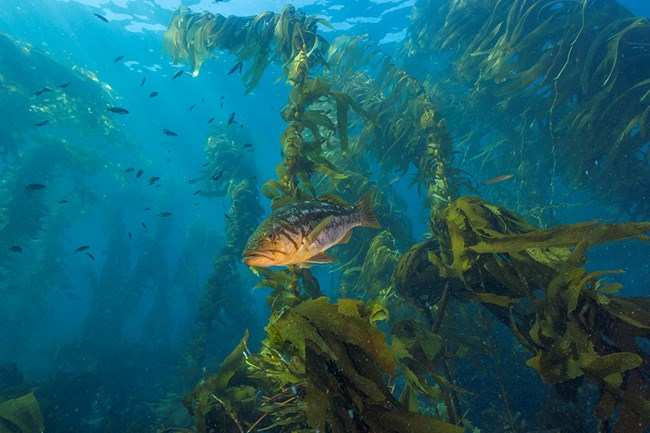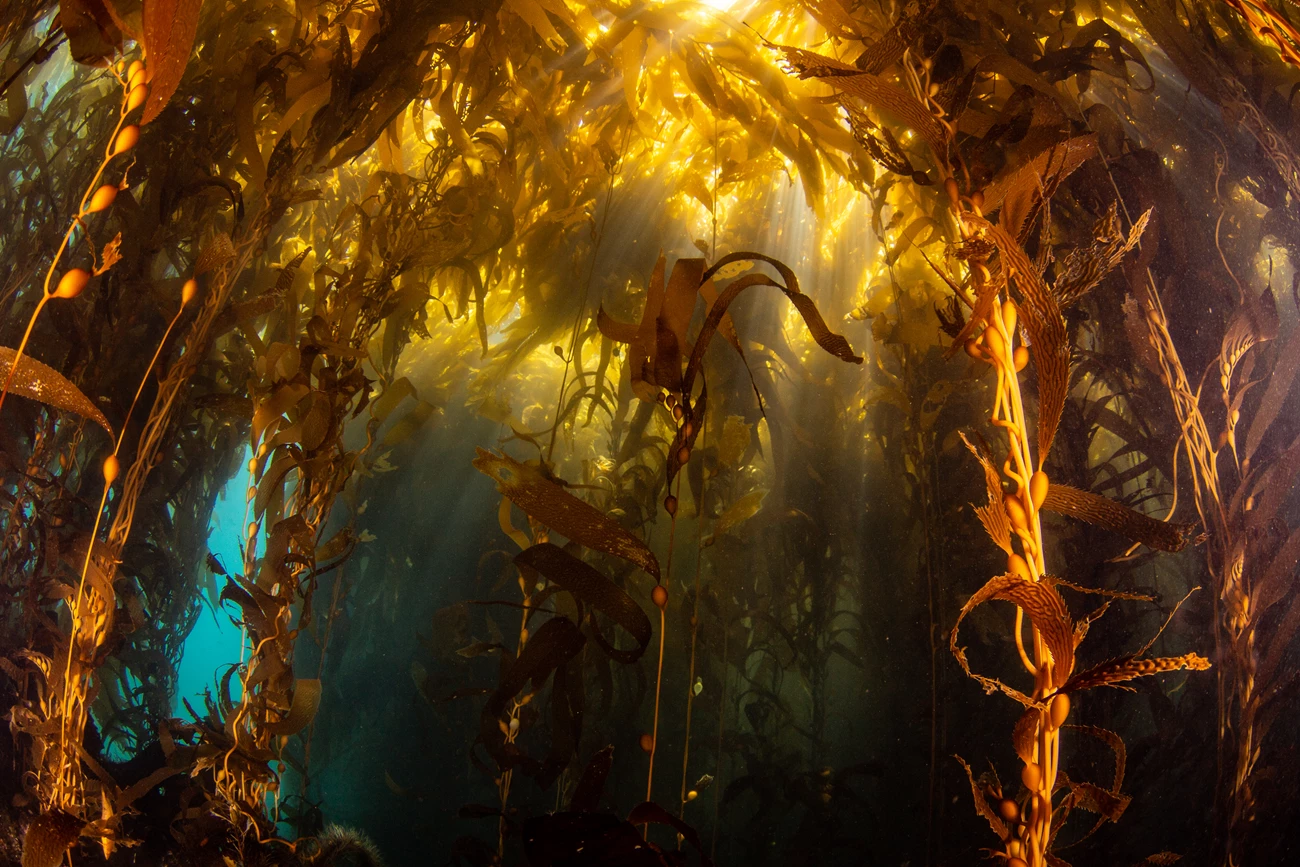
NPS/Brett Seymour Oceans are the largest heat sink on the planet, absorbing 90% of the excess heat caused by climate change4. As our ocean temperatures rise, warmer-water species are extending their range and becoming more prevalent further north along the Pacific coast. Invasive species such as Sargassum horneri, a marine alga, thrive under more moderate ocean temperatures5. As ocean water temperatures increase, oxygen also becomes less soluble in our oceans. As a result, ocean warming has reduced oxygen concentrations in the California Current by 20% from 1980 to 20126. Oxygen is important in the ocean for the same reason it is on land—plants and animals require oxygen to survive. 
Dave Witting We depend on the oceans, so we have a responsibility to protect them. The oceans absorb the extra carbon dioxide people emit when they burn fossil fuels which alters the chemistry of the oceans. This is called ocean acidification. Since the start of the industrial revolution, the ocean has absorbed roughly 30% of the carbon dioxide that people generate through industry and agriculture7. Ocean waters off the Pacific coast have become 40% more acidic since 17508, impacting many sea-dwelling species. The change in chemistry is reducing the amount of calcium carbonate in the ocean. Just as humans need calcium to build their bones, many sea creatures such as abalone, oysters, clams, and mussels, need calcium carbonate to build their skeletons and shells. As a result of this ocean acidification, we are seeing sea creatures’ shells and skeletons become thinner and more brittle. Since shelled organisms are essential throughout the marine food chain and are vital to our economy, these changes can threaten hatcheries and impact both marine life and the people who depend on them. Due to kelp’s speedy growth rate, these algae are extremely proficient at removing dissolved carbon dioxide from our oceans. In fact, 200 million tons of carbon dioxide are being sequestered by macroalgae such as giant kelp every year9. Declines in kelp forests will further decrease the effectiveness of this natural carbon sink from mitigating the impacts of climate change. 
NPS/ Scott Gabara Now that we know about ocean warming and acidification, it’s important to rethink our use of fossil fuels and act collectively to inspire new approaches and civic programs to solve climate change. |
Last updated: August 22, 2023
